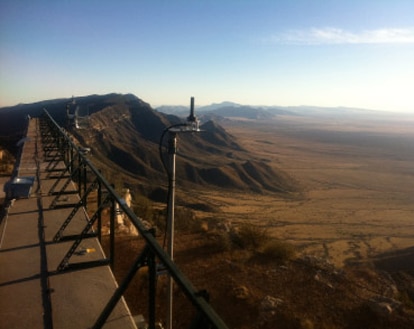The U.S. Air Force has signed a contract agreeing to large-scale testing of a new ground-based positioning technology that could compete with GPS. The testing will take place at the White Sands Missile Range in New Mexico.
The Locata technology will be used to provide accurate positioning during equipment tests by the Department of Defense and other authorized users that may jam GPS technology at White Sands.
“This is one of the most important technology developments for the future of the positioning industry,” Ninzio Gambale, CEO and co-founder of Australian firm Locata, said.
The new technology employs ground-based equipment instead of satellites to project a radio signal over a localized area that the developer claims is “a million times stronger on arrival” than GPS and capable of working both indoors and outdoors. Traditionally, GPS technology is considered to be unreliable indoors and in dense areas of large cities.
The Locata technology is also expected to supplement and possibly replace GPS technology in emergency response systems and the emerging indoor navigation industry.
However, though the technology’s signal is much stronger and more resilient than traditional GPS signals, it is not guaranteed to work in a “complex urban environment,” David Last, consultant to the UK’s General Lighthouse Authorities, said.
“In urban areas, there are multiple blockages; propagation is principally via multi-path reflections,” he explained.
According to Gambale, Locata is in the process of testing the technology’s effectiveness in an urban environment and hopes to have the technology available for cellphone use within five years.
For more information, visit Inside GNSS and NewScientist.
Image: Inside GNSS






